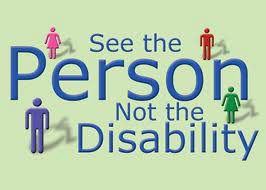
Person-first language was originally introduced by disability advocacy groups in the 1980s to fight the dehumanization of disabled people and has evolved into a tool of ableism used to oppress stutterers and inhibit the formation of self-advocacy networks. It employs awkward phrasing that marks stuttering as an undesirable trait and reinforces non-disabled speech as normative. The person-first label ‘person who stutters’ is often abbreviated to PWS. Using acronyms to refer to an individual or group of stigmatized people accentuates the marginalization of that group.
These linguistic standards are imposed upon disabled people, although many disability groups are very explicit in their rejection of person-first language (the Deaf, Blind, and Autistic communities, for example). The strongest support for person-first language comes from non-disabled parents of disabled children and clinicians working with the disabled, individuals who are not using the language to refer to themselves. Person-first language is codified in policy by many social work, therapy, and academic organizations, which may require their employees to use it.
Many stuttering self-help organizations model person-first language, referring to individuals as people who stutter. These organizations may support stuttering pride and view their members positively, but insisting on person-first language reinforces the message that stuttering is a defect. The tone of these groups is commonly one of minimizing or ‘overcoming’ stuttering, and members are discouraged from adopting dysfluency as an element of identity.
Person-first language, with its emphasis on the person and not the disability, is effective in separating disabled people from each other and lessening the strength of community formation. To form communities of political significance, we need to be seen as stutterers (and Autistic people, and wheelchair users, etc.) instead of people who stutter, people with autism, people who use wheelchairs.
The distinctions between person-first and identity-first language can seem insignificant to non-disabled people, to whom these labels aren’t applied. While proponents claim that referring to us as people first is more respectful, they dismiss the fact that only stigmatized identities are given person-first labels. We are not expected to call ourselves ‘people with whiteness’ and no one seems worried that our identities will be reduced to our shoe size or eye color. Similarly, non-disabled people are not expected to refer to themselves as ‘people who are not people who stutter’.
Some people prefer to be called people who stutter, or people with disabilities. It is their right to choose the language of their identity, and their choice should be respected. That right should be respected among all disabled people. There is no linguistic standard that can be applied so broadly. No person should be burdened with the duty of asserting their humanity as a means of introduction. We are people. To ensure that this fact is not overlooked in discourse about our bodies is not our responsibility.
-Erin
 RSS Feed
RSS Feed
